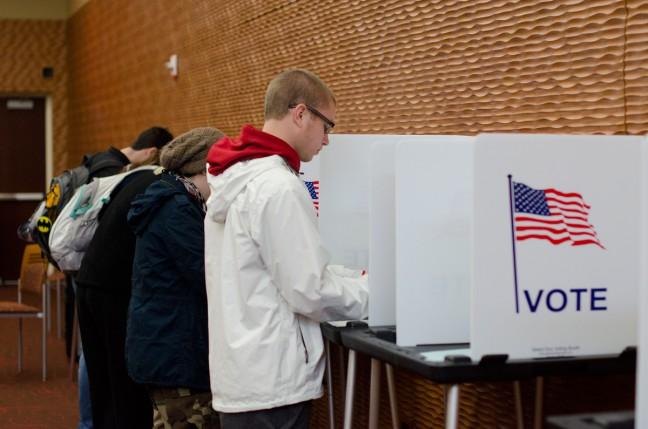Despite all of Gov. Scott Walker’s rhetoric on the campaign trail, business is not exactly booming in Wisconsin. Sure, things have improved here since the depths of the great recession, but that isn’t saying much.
State economies have been on the rebound all across the country for the last five years, and Wisconsin is far from exceptional in this regard. In fact, Wisconsin is falling behind the rest of the Midwest in job growth. From June 2013 to June 2014, Wisconsin was tied with South Dakota for the worst job growth rate in the region. According to an Economic Policy Institute report, Wisconsin had the highest unemployment rate for African Americans in 2014.
Wisconsin has a serious problem, and there’s no easy way to fix it. However, there is at least one thing we know will unequivocally help: better education and more of it. Ensuring every Wisconsin citizen has access to quality education will help to increase job growth in general and decrease racial divides in the economy. In essence, it will increase the size of the pie and make sure everyone gets a more equal slice of it.
It is especially distressing, in this context, that the state of Wisconsin has not been adequately funding its public schools. This is well documented; Walker’s cuts to public education are the biggest in the state’s history, and on a per-pupil basis are some of the largest in the country.
Interestingly, it appears Wisconsin residents disagree with their elected officials on education. School districts are relying more and more on public referenda, just like the one passed in Madison last week, to obtain funding. These ballot measures allow school districts to raise property tax revenue beyond state-mandated caps.
According to the Wisconsin State Journal, the number of public school referenda increased drastically over the last five elections, from 13 in 2012 to 35 last week. Further, 76 percent of those referenda passed.
The trend is clear: schools are relying more and more on these sort of ballot measures to make up for shortfalls in other funding sources — namely, the state.
It is encouraging that voters are passing these ballot measures at such a high rate. However, this trend of increased reliance on referenda for funding is deeply troubling for a variety of reasons. To begin with, it makes the quality of schools even more dependent on where they’re located.
School districts in wealthier areas are more likely to have their referenda passed, as their residents are more able to afford increased property taxes. This further reinforces the class divide. Giving richer people access to better schools while simultaneously depriving poor people of quality education will not accomplish anything good. Ideally, the state would be acting as a middleman, making sure schools have plenty of funding regardless of where they are located.
Compounding this problem, ballot measures are a potentially volatile funding source. Basing important operating decisions on the whims of public opinion is far from optimal. In order to plan effectively, it’s important for schools to know what their funding situation looks like in the future. As schools rely more on more on referenda for routine funding, they will have to budget for the possibility that part of their funding could be cut at the polls.
In order to make Wisconsin a more prosperous, equitable place, we need to ensure every child in Wisconsin has equal access to education. The trend of making school districts more reliant on local, volatile funding streams is antithetical to this goal. Although this is unlikely to change in the near term — the state’s government doesn’t seem particularly open to public feedback — it’s crucial that Wisconsin voters keep this in mind the next time they head to the polls.
Joe Timmerman ([email protected]) is a senior majoring in math and economics with a certificate in computer science.














